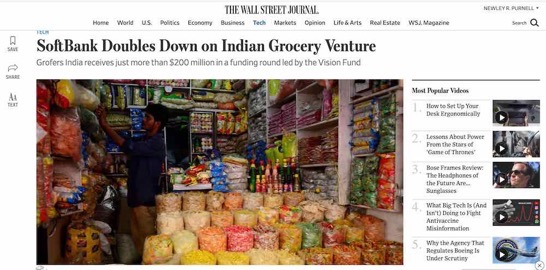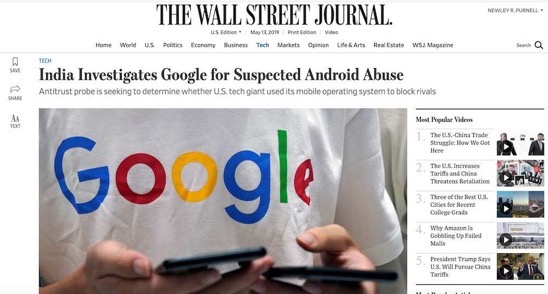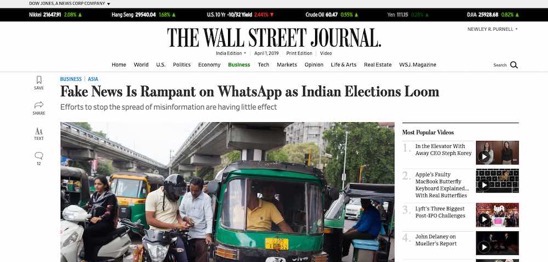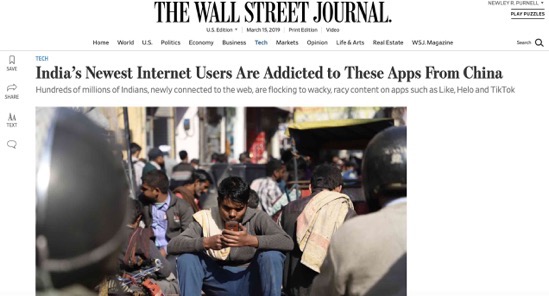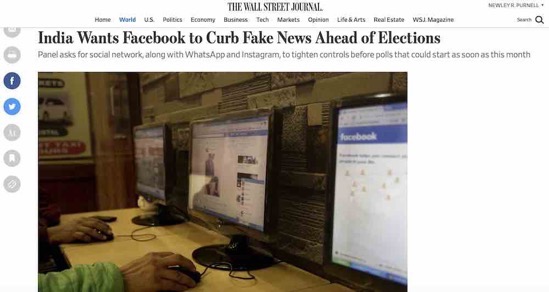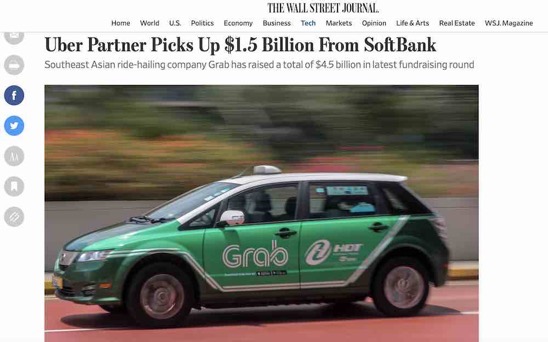
That’s the headline on my newest story, a scoop out yesterday with my colleague Rajesh Roy.
The lede and first few grafs:
NEW DELHI–India’s antitrust watchdog is assessing the domestic e-commerce sector, a step that could have consequences for Amazon.com Inc. and Walmart Inc.’s Flipkart, which dominate online sales in the country.
In a questionnaire dated May 17, the Competition Commission of India says it is seeking to understand the evolution of the e-commerce industry, the sector’s methods and strategies, business practices and “implications for competition,” according to a copy reviewed by The Wall Street Journal. Ernst & Young is conducting the study, according to the 14-page document, which is marked confidential.
The questions cover the percentage of products sold by categories, inventory practices, how pricing decisions are made and total sales volume, among other subjects.
“What if tomorrow Amazon takes over Walmart-controlled Flipkart or vice versa? Wouldn’t there be a complete monopoly? This needs to be checked,” said an official at India’s Ministry of Corporate Affairs who declined to be named. The ministry oversees the Competition Commission.
A spokesman for the Competition Commission of India didn’t respond to a request for comment about the questionnaire Tuesday. Representatives in India for Ernst & Young, Amazon and Flipkart also didn’t immediately respond to requests for comment.
Click through to read the rest.
